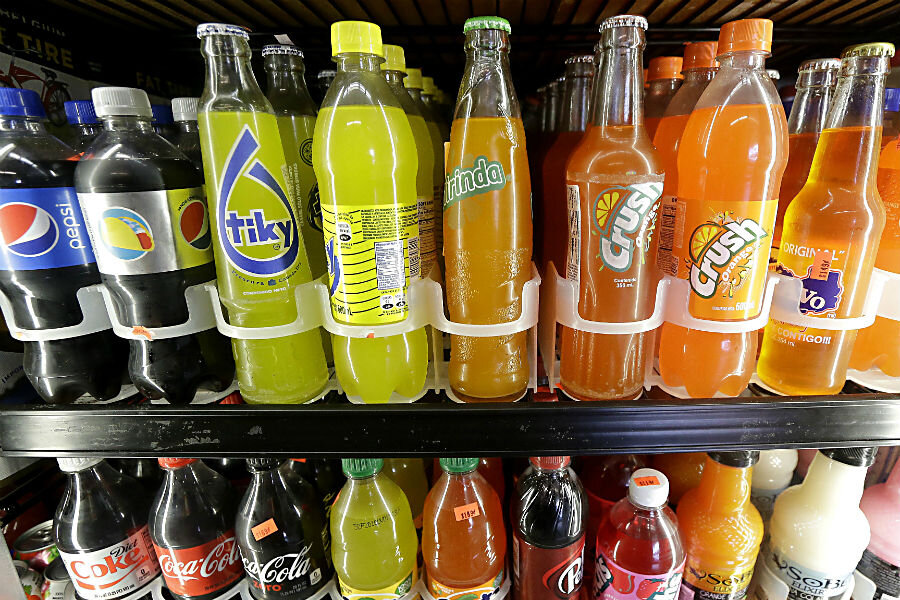Why W.H.O. wants to raise taxes on drinks with sugar
Loading...
| Geneva
The U.N. health agency on Tuesday recommended that countries use tax policy to increase the price of sugary drinks like sodas, sport drinks and even 100-percent fruit juices as a way to fight obesity, diabetes and tooth decay.
The World Health Organization, in a statement timed for World Obesity Day, said that the prevalence of obesity worldwide more than doubled between 1980 and 2014, when nearly 40 percent of people globally were overweight.
In a 36-page report on fiscal policy and diet, WHO also cited "strong evidence" that subsidies to reduced prices for fresh fruits and vegetables can help improve diets. It said that tax policies that lead to a 20-percent increase in the retail prices of sugary drinks would result in a proportional reduction in consumption.
Drawing on lessons from campaigns to fight tobacco use, WHO says imposing or increasing taxes on sugary drinks could help lower consumption of sugars, bringing health benefits and more income for governments such as to pay for health services. The health agency has long recommended that people keep intake of sugar to less than 10 percent of their total energy needs.
"Consumption of free sugars, including products like sugary drinks, is a major factor in the global increase of people suffering from obesity and diabetes," says Dr. Douglas Bettcher, who heads WHO's department for preventing non-communicable diseases. "If governments tax products like sugary drinks, they can reduce suffering and save lives."
WHO officials say that the U.S. is no longer the leading consumer of sugar-sweetened beverages — Chile and Mexico are now in front. They also noted rapid increase in consumption like China and sub-Saharan Africa. At least three in five adolescents in countries like Chile, Argentina and Algeria consume soft drinks daily, compared to between 20 to 40 percent in the U.S. and much of Europe.
"Taxation policies can be a very important tool — just one tool among many — but a very important tool for the reduction of sugar-sweetened beverages," said Dr. Francesco Branca, who heads WHO's Department for Nutrition and Health. He pointed to "pioneering" efforts by Michael Bloomberg, during his time as mayor of New York, and other U.S. officials to reduce sugar consumption.
The report was based on information collected in May last year, but WHO is coming forward with its recommendation on Tuesday because the evidence of the link between tax policy and reduced consumption coupled with health benefits have only recently emerged, said Temo Waqanivalu, coordinator of WHO's department for the prevention of non-communicable diseases.
Waqanivalu said that "discussion is ongoing" with companies behind such beverages on efforts to reduce sugar consumption.
In the US earlier this year, The Christian Science Monitor reported that lawmakers in California and New York looked at requiring warning labels on high-sugar drinks as a weapon against childhood obesity, and a study claims the labels would dissuade parents from giving them to their children, Carina Storrs reported for CNN.
The study used an online survey to show 2,381 parents a series of beverages and used labels featured in California's proposed law: "Drinking beverages with added sugar(s) contributes to obesity, diabetes and tooth decay."
When the parents saw sodas and sugary juices with the label, only 40 percent of parents said they would give their child the sugary drink, compared with 53 percent who saw the calorie-count label used currently or 60 percent of parents who saw the drinks with no labels.
"[Health warning labels] provide an extra layer of information that people can understand," said David Hammond, lead researcher and professor in the school of public health at the University of Waterloo in Ontario, according to CNN.







